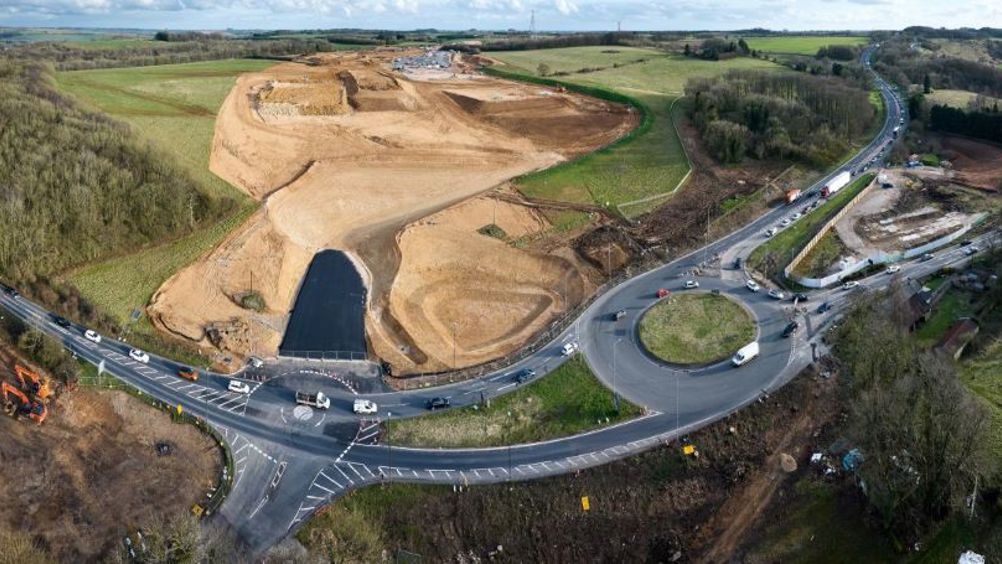Undertaken by RSK Group company TerrAffix and Kier, the laboratory trials are believed to be the first to look at the possibility of removing microplastics from road runoff using biochar, which is created when organic materials are turned into refractory carbon via pyrolysis.
The trials were carried out at Swansea University and found that there were no traces of microplastics in the road runoff. The solution will next be put on trial on Kier and National Highways’ A417 project, with details of the road trial in design now.
In a statement, Matt Tompsett, head of environment and sustainability at Kier Transportation, said: “We’ve been aware of the hidden impact of microplastics generated by the highways network for years.
“We wanted to focus on a solution that could be deployed at scale within highway drainage systems. I had high hopes that biochar would be effective at removing microplastic, but the fact that there were no traces of microplastic is fantastic. Globally, there are no published papers at all which look at road runoff and microplastic removal using biochar, so this research is breaking new ground. As with all good research projects, they raise questions as well as answer them. We now know that biochar is very effective at removing microplastic from road runoff, but we don’t know if this effectiveness diminishes over time, so the next step will be to use in a real-world scenario on our National Highways A417 Major Project to find out.”
MORE FROM ENERGY & ENVIRONMENT
TerrAffix CTO Siôn Brackenbury said that road runoff was composed of a variety of contaminants including lead, copper, zinc and cadmium, hydrocarbons and microplastics.
“Microplastics enter the water system by collecting in road dust through sources such as tyre wear, polymer-modified bitumen used in road pavement, some road marking paints and road pavement made of recycled plastics. The microplastics in road dust are washed into waterways during storms making runoff one of the primary sources of microplastics in water systems. The ubiquitous nature of microplastics in natural environments, alongside their potential to transmit harmful pathogenic microorganisms and enter the food chain with associated risks to ecosystems and human health have caused global concern.”
In the laboratory tests, a microplastic solution was used as a close representation of highway run off. The solution was passed through five water columns in triplicate, each with a different filter stone/biochar ratio.
The microplastics used in the study are commonly seen in field conditions, and the solution was added to the columns three times daily over the period of two weeks.
According to RSK, this volume was calculated from an average of the highest 30 daily precipitation values in Southeast England during the period 2000 – 2018, to mimic the nature of precipitation in the field.
No microplastics were present in the solution once it had passed through the columns, demonstrating that even the lowest biochar/filter stone mix could remove microplastics.










Invinity to build 20MWh flow battery in UK
A surprising comment for someone who (I think you´ve said in the past) worked in the industry. National Grid have a variety of reserve service schemes...